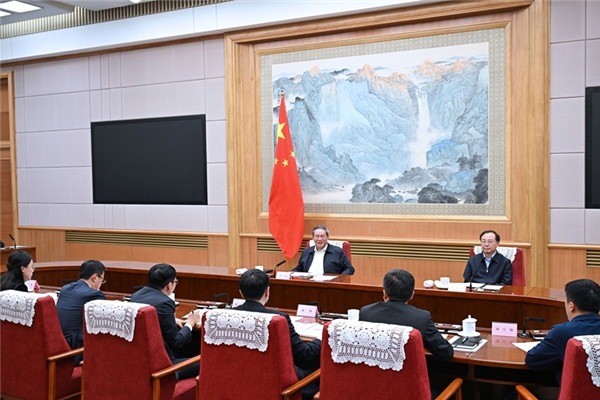Investors should look at long-term opportunities in China's evolving capital market, analysts say

Although China's three major stock indexes fell on Friday, analysts said investors should look beyond short-term market fluctuations and focus instead on high-quality companies with sustainable earnings growth, aiming to capture the long-term opportunities in China's evolving capital market.
The Shanghai Composite Index dropped 1.95 percent to 3,839.76, while the Shenzhen Component Index declined 3.04 percent to 12,688.94. The ChiNext Index, which tracks China's Nasdaq-style board of growth enterprises, slid 3.36 percent to 2,935.37.
Despite current market uncertainties, global investment firm AllianceBernstein said it believes A-shares possess the conditions to gradually transition into a structurally upward market driven by earnings growth. This outlook, according to Li Changfeng, head of market strategy at AllianceBernstein, is underpinned by sustained improvement in corporate profitability driven by policy measures, a moderately accommodative policy environment, and the ongoing repricing of market valuations. These factors, Li said, have significantly enhanced the long-term investment appeal of the Chinese stock market.
Li added that the continued improvement of Chinese companies' innovation capabilities, along with the government's steady backing of the private sector, are key to building a long-term healthy stock market ecosystem.
In the face of persistent external pressures, maintaining appropriate stimulus remains vital to facilitate economic transformation and strengthen corporate profits, Li noted. Encouragingly, many Chinese companies are demonstrating robust earnings growth momentum, and profit forecasts for the A-share market continue to be revised upward — a sign of improving fundamentals that could lend solid support to market performance.
"The policy environment is expected to remain supportive while balancing external challenges with internal transformation," Li said. "AllianceBernstein believes that as earnings improve, policy support continues, and valuations have room to expand, the A-share market is advancing toward a healthier and more sustainable development trajectory."
China's stock markets have experienced a substantial turnaround since September 2024, thanks to both Beijing's policy pivot and the impressive advancements made in artificial intelligence, automation, green technology, biopharma, chipmaking and other sectors, according to a research note released on Friday by Lu Ting, chief China economist at Nomura, and his team.
Looking ahead to the next five years, Nomura said Beijing is set to continue advancing tech self-sufficiency through significant investment and industrial policy, particularly in semiconductors and AI, as China faces stricter global trade and investment restrictions.
Commenting on expectations for China's 15th Five-Year Plan (2026-30), Zhang Ning, senior China economist at UBS Investment Bank, said in a research note that fostering high-quality growth is likely to be the top priority over the next decade, driven primarily by innovation and total factor productivity growth.
Zhang noted that China is expected to continue supporting both fundamental and frontier research, as well as addressing technological bottlenecks in key "self-sufficiency" areas. The upcoming plan may also help clarify some strategic goals and core principles of the anti-involution campaign, highlighting building a unified national market, curbing irresponsible local government investment, and boosting local consumption.
While the plan is expected to maintain its focus on supply-side measures, Zhang stressed that boosting demand will be crucial to the campaign's success.
jiangxueqing@chinadaily.com.cn




































